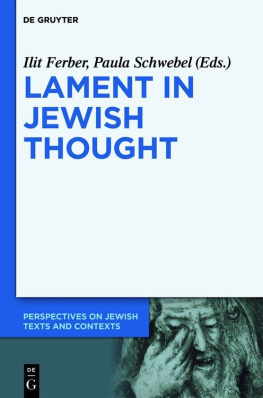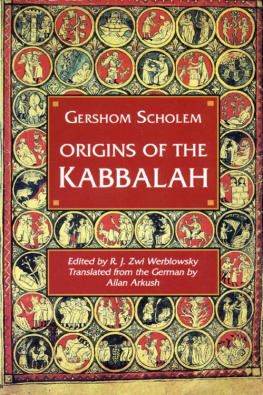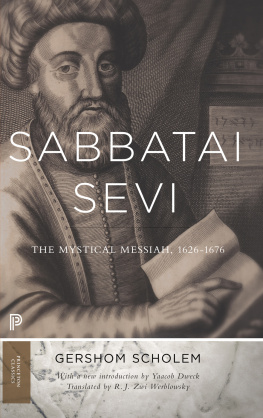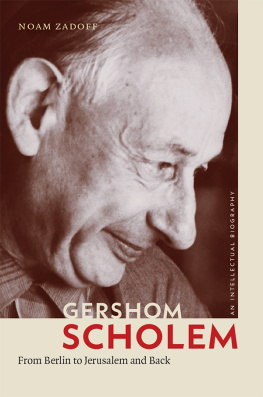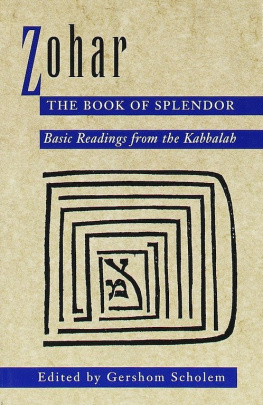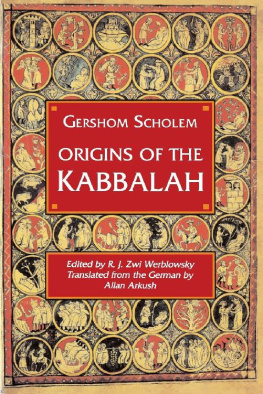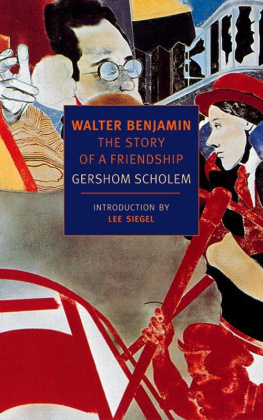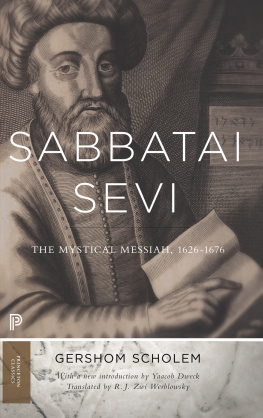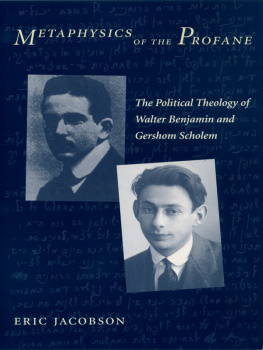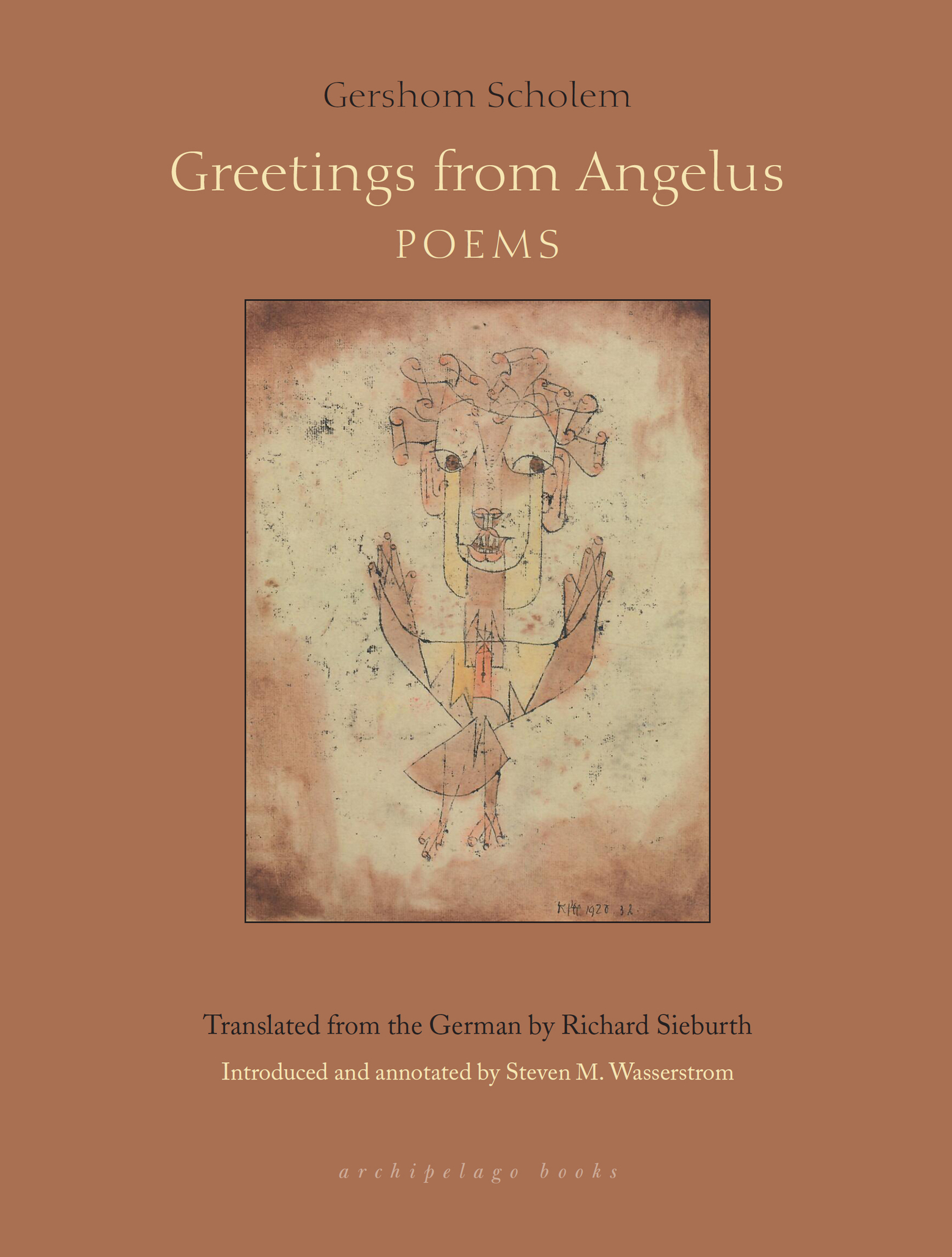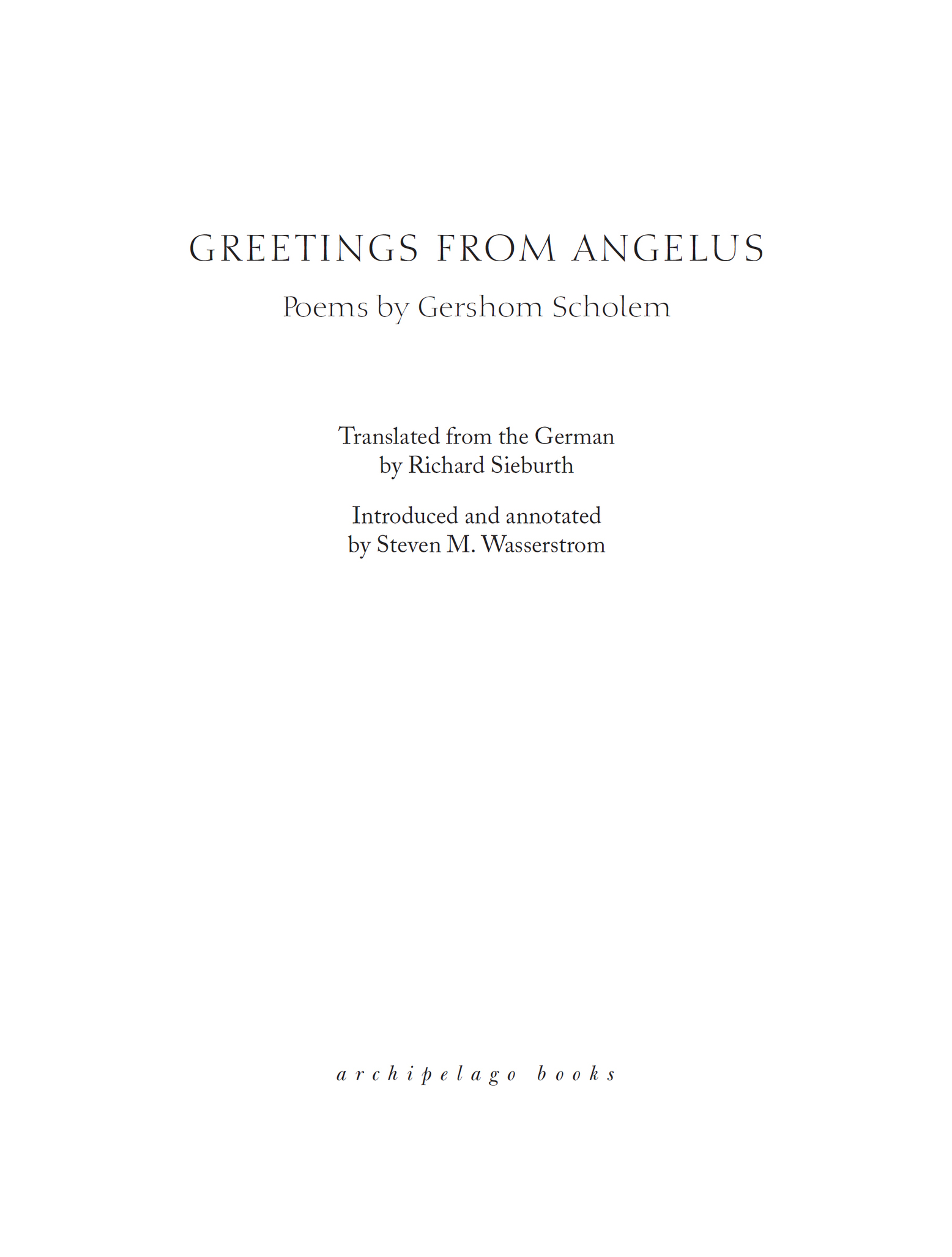All rights reserved. No part of this book may be reproduced or transmitted in any form without the prior written permission of the publisher.
These poems and Steven M. Wasserstroms introduction first appeared in Ibis Editions The Fullness of Time, 2003.
This book was made possible by the New York State Council on the Arts with the support of Governor Andrew M. Cuomo and the New York State Legislature. Archipelago Books also gratefully acknowledges the generous support of the New York City Department of Cultural Affairs, the National Endowment for the Arts, and Lannan Foundation.
THE FULLNESS OF TIME: SOME THOUGHTS ON THE POETRY OF GERSHOM SCHOLEM
Over your inconsistency, Lord,
Permit me that I brood:
You created the merriest poet of all
And then you spoiled his mood.
Heinrich Heine
Gershom Scholem philosopher, historian, unmatched philologist of Kabbalah, and one of the twentieth centurys major scholars wrote poems. His archives in Jerusalem contain some forty-five of these verses, in his own hand and in typescript. Scholem composed poetry sporadically throughout his life, from his early teens to his mid-seventies. Only two of the poems were published during his lifetime. This is, almost exclusively, private verse: intimate, oracular, reflective, light, melancholy.
The towering Jewish thinker early on exhibited a heroic determination to become Jewish. Papa worked on Yom Kippur and didnt go to synagogue. With a sardonically Berliner edge, his father lit a cigar from the Sabbath candles with the blessing: borei pri tabacco (Who creates the fruit of tobacco). The sacrilege was not extraordinary, and not only in Berlin.
While the son seems to have understood his own character and destiny with almost freakish precision while barely into his teens, and though he wrote hundreds of pages from those days that survive, we still dont possess a rounded study of the life and works of the young scholar. Cynthia Ozick rightly aches for a Thomas Mann to make a fat Bildungsroman of Scholems early life.
Patterns are traceable in the earliest records. Fortunately for the chronicler, Scholem sprang full-born, as it were, from the head of a Jewish Zeus. He was already rhyming Golem with Scholem (as Borges would do many years later) in verse recorded in his teenage journals. He transposed this megalomaniacal joke into various idioms, as when he told his mother he would attain the seventh level of heaven, or that he could perform alchemical feats of transformation, or that he would master Kabbalah, that most elusive and obscure of fields, which hitherto had been characterized by most liberal Jews as degeneracy and impotent hallucination. It has only recently been discovered (since he left it out of all bibliographies of his work) that one of his first important scholarly publications was the 1928 Alchemie und Kabbalah, in the occultist journal Alchemistische Bltter.
His first significant poem honored Theodor Herzl, to whom, in his volcanic early journals, Scholem compared himself in quasi-messianic terms. In one 1914 entry he invoked the figure of Moses as a model of devotion and leadership, then went on to quote Heines lines about Yehuda Halevi: Yes he will be a mighty poetlight and lamp to all his people, and a wonderful and mighty pillar of poetic fire. The figures of Herzl, Halevi, and the original poet-legislator as Scholem refers to Moses in his notebooks thus were all folded into the young Scholems sense of his own vocation. As Moses redivivus, he reveals (concealed in his diary solitude) an ambition to storm the Kabbalistic heavens. To what extent this was to be allegory (the primary and predominantly rational figure of speech being studied by his friend Walter Benjamin), to what extent living, transcendent symbol (as he himself later concluded), he did not yet know. An oscillation between ascent and decent identification and distance set in between these poles.
The attraction of descent in particular was powerful. Jeremy Adler writes of Scholems 1915 journal entry, on the Day of Atonement, where he confesses that while he can fast, he cannot pray to God, but only seek Him. He considers suicide, and breaks off relations with Heaven. His problems with the Creator correspond to the discovery that he himself is not, after all, the Messiah. This entails an inward turn: the great event is silent, the eternal takes the path into the depths.
The weighty means for coming down to earth, for getting and staying grounded, turn out also to be strangely elevating. These means he called philology. As early as 1918, in a letter to his future wife Escha, he wrote that philology is a veritable secret science.
The German milieu that elicited this esoteric conception of Wissenschaft, the philological science of Judaism, teemed with exaltations of Dichtung, poetry, and the argument can be made that Scholems career as a master of German prose was in fact born in verse. For one, his epochal friendship with Walter Benjamin began with poetry, as the first writing Benjamin shared with Scholem was his essay Two Poems by Friedrich Hlderlin in 1915. Two years later, Benjamin praised Scholems translation into German of the Song of Songs. And Scholems first published scholarly article in his chosen field was Lyric of the Kabbalah? which contains an excellent description of the mechanisms and effect of, for example, the mystical Hebrew Poems of the Palaces, material that later found its way into his seminal Major Trends in Jewish Mysticism.
Private verse belonged to a venerable German tradition. In the last century, thinkers of the highest order (Jung, Benjamin, Heidegger) continued to write poems that were not intended for publication, but were sometimes given as tokens of a certain kind of philosophical friendship.
His poems to Benjamin aside, perhaps Scholems most revealing poetic work was written in the context of the intellectual circle known as PILEGESCH (Hebrew for concubine), an acronym formed from the first letters of the names of the six participants: Hans J. Polotsky, Hans Jonas (pronounced Yo-nas), Hans Lewy, George Lichtheim, Gerhard Scholem and Schmuel Sambursky. In the last months of his short life, the Berlin-born Jerusalem classicist Hans Lewy composed parodic verses in Latin for Scholem. Scholem then delivered the public eulogy for Lewy, in which he said that his late friend possessed a poetic souland indeed the Muses grace poured over him, then went on to talk of his friends deep connection to poetry, and above al to the work of Stefan George. The physicist Schmuel Sambursky wrote several honorary poems to the Kabbalah scholar and to others in their circle, preserved in a rare volume titled


